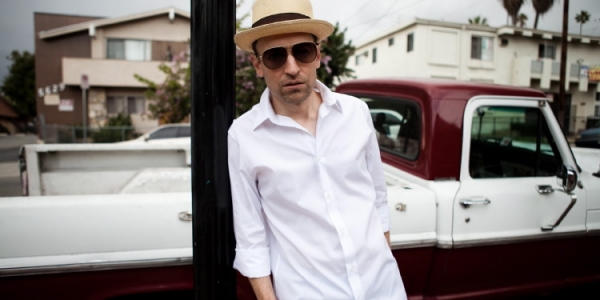“It was just something I couldn’t imagine you know, a 20-year-old person dying. One minute he’s healthy and the next minute he’s gone. I lost my friend and my music partner all in one and it just made me really vulnerable.”
As Manuk discusses the loss of his collaborator and close friend Charizma, who passed in December of ’93 as the burgeoning duo were gearing up to take off, you get the sense he lost much more than just a friend and musical companion.
“I have so much belief in him and I, and what we were going to do together, and to be stripped of that didn’t make any sense to me at all,” Manuk says. “We worked all day long together and to have somebody taken away from you that you knew so well it was like a part of me left with him. I basically fell under a depression and didn’t really want to do anything and I found eventually making music helped me heal the loss of losing my friend. I thought that he and I were going to be a group forever and then I had to really re-think like, ‘What am I going to do with my life now?’ and I didn’t really want to be another group with somebody else so I decided I’d work behind the scenes and do the label thing.”
Doing the label thing lead to Manuk starting Stones Throw Records in ’96. The label’s debut release was My World Premiere by Charizma & Peanut Butter Wolf. Three years since its recording and the death of Charizma, the world finally got to hear their music.
“It felt great. His family was into it, they were really supportive of me,” Manuk says, explaining that the Charizma legacy lives on too. “Actually there’s guys doing a documentary on my label at the moment and a large part of that is my partnership with Charizma. I just uncovered a 20-minute video interview that a guy had done in Oakland and he gave me the footage like three weeks ago. I’d never seen it even though it was from ’92, 21 years ago. Just to be able to get my hands on that footage and to be able to give it to Charizma’s family is awesome.”
Stones Throw really took off towards the end of the ‘90s as Manuk proved an astute talent finder, leading to a string of groundbreaking underground hip hop recordings.
“When I first started working with some of them nobody had heard who they were. With Madlib in particular he was an unknown when I worked with him and when I heard him I thought, ‘How can this not be known? This is the best thing I’ve ever heard’. Take Quasimoto for example, that was just something he did for the fun of it and when I first heard him he said, ‘Oh you won’t supposed to hear that. I’m embarrassed’ and they turned into this cultish thing and people get a tattoo of Quasimoto or Lootpack, who were the other band Madlib was in at the time. That just reminds me how passionate people are to get something permanent on their body like that.”
As Stones Throw became a full time venture his earliest passion as a beat producer took a back seat. It’s never fully gone away though according to Manuk. “I kind of go back in the studio, I did what was supposed to be a remix but became a cover of a song called Go Bananas, this old electro song from the early ‘80s that was kind of unknown. I actually just started making hip hop beats again, Homeboy Sandman was asking me to make some tracks and kind of inspired me to get back in the studio and see if I can still do it. I’ve been coming up with some good stuff, it’s just finding the time when I’m doing a lot of travelling and a lot of stuff for the label.”
Having seen every trend and style of hip hop across the past two decades, when Manuk talks about where the genre is at you shut up and listen.
“Some artists are dumbing down their work and some are coming from the heart who are just simple lyrically and that’s kind of just what people like to hear and they embrace those artists. It was that way even when I was doing it. My influences were like Ultramagnetic MCs and they never sold a lot of units. The hardcore heads kind of knew who they were.”
The big, bad wolf of the hip hop underground has spoken.
BY RYAN BUTLER

